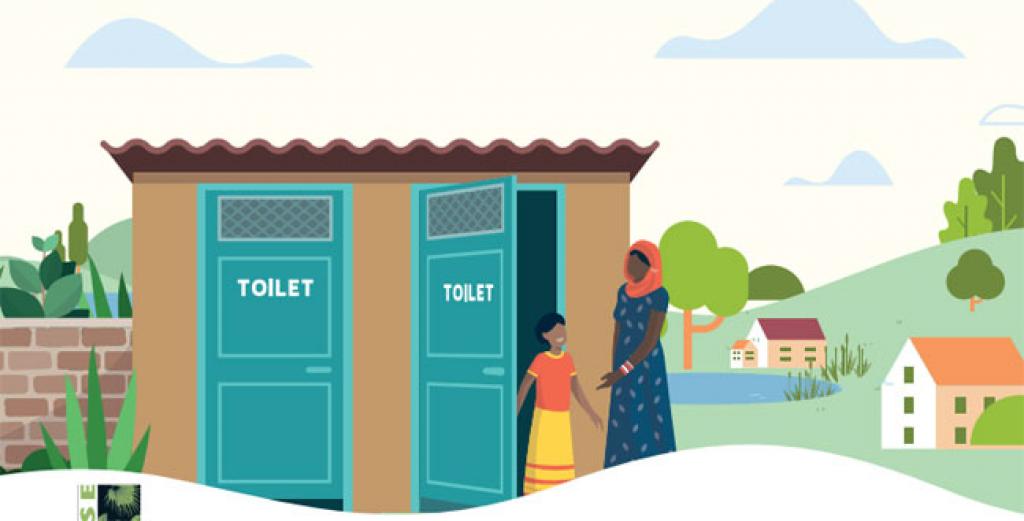
Date: 21-30th August, 2021
BACKGROUND:
Swachh Bharat Mission’ launched in 2014 has been responsible for the largest global drop in open defecation -- in terms of absolute numbers -- since 2015. The country has built over 170 million toilets in 0.6 million villages under the government’s. The question one may ask here is, does this otherwise commendable feat signal the end of the story of our quest for sanitation? We don’t believe it does.
The story in India has now moved forward to one of a new challenge. The construction of such a huge number of toilets requires serious thinking on safe containment and management of the waste from them. In rural areas, where on-site containment is the only solution, an emphasis on correct toilet designs and management of liquid waste from toilets and bathrooms is needed to move towards safe sanitation. Wrong choice of technologies, sub-optimal construction, and neglect of local geography have often led to leaking of black water into ground and surface water sources.
The story in Sub-Saharan Africa remains where India was before 2015: the region needs to work on eradicating open defecation. The JMP report says that around 196 million of the 494 million people practicing open defecation in the world are from Sub-Saharan Africa. But the countries in this region must not wait to first become ODF and then start planning for safe sanitation – they must plan ahead holistically, and start focusing simultaneously on safe sanitation practices.
Moreover the coronavirus pandemic also taught us that everybody must have access to public health and clean water, so that nobody is left out and nobody can be the carrier of the virus. We know that massive numbers of people in our rural regions do not have access to clean water. But what is worse is that if we do not safely treat and reuse faecal sludge, it will end up contaminating the available sources of water, reducing supply or adding to the health burden of communities
THE KEY TAKEAWAYS:
- Knowledge of safe adaptable and sustainable technologies for managing toilet waste
- Understanding of decentralized technologies used for management of grey and black water
- Training on how to reuse of the wastewater/faecal sludge.
- Guidance on the use of Information, Education and Communication (IEC) materials effectively for safe disposal/reuse of faecal sludge.
- Connecting water to toilets – how to make the usage of toilets sustainable.
ABOUT THE TRAINING:
CSE is organizing a training programme on key topics of faecal sludge management in rural areas. The course comprises of material handpicked from years of CSE's work in the field for self-study, and learning tools such as presentations, audios and videos, all featuring the most relevant case studies. The training will provide online forums for discussion. Quizzes and assignments will also be part of this programme. There will be pre-recorded expert sessions and two live doubt clearing sessions, once every 5 days. Training modules in Hindi will also be introduced.
To register Contact
Course coordinator
Swati Bhatia
Programme Officer, Rural Water-Waste Programme
Email: shivangi.agarwal@cseindia.org, sushmita@cseindia.org
Mobile/ WhatsApp: + 91-9599426168